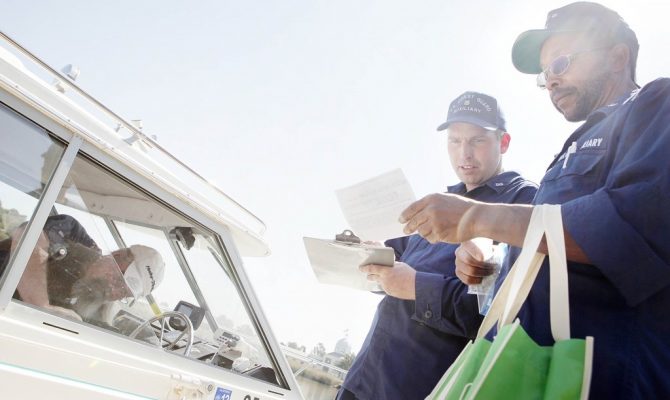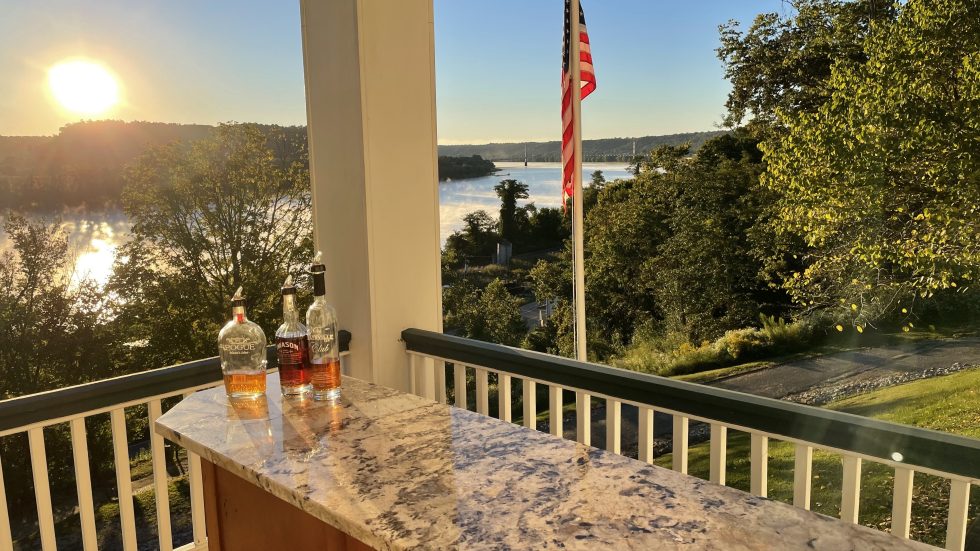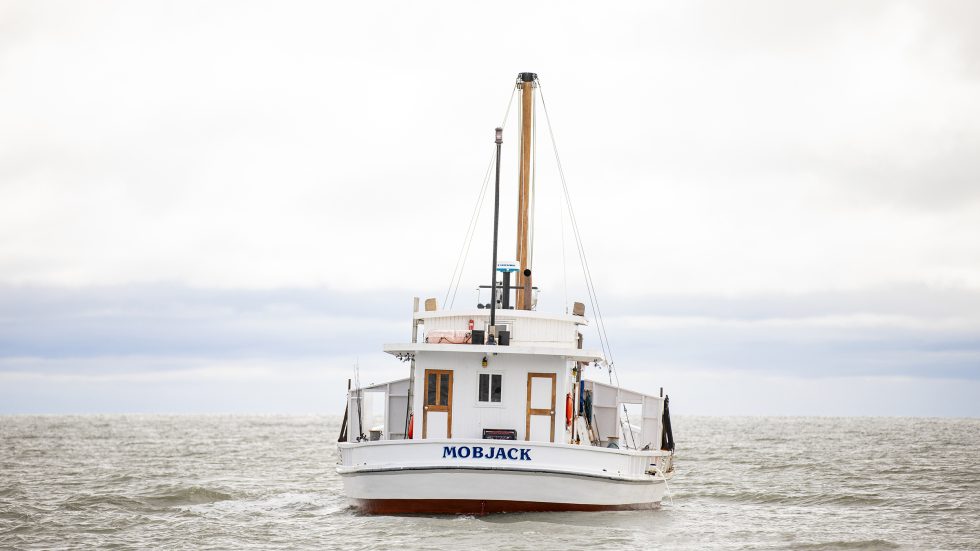Alright-y then
The Coast Guard has the right to board, inspect and search a vessel whenever they consider it necessary. If they wish to approach you in unorthodox ways (i.e. via darkened ship and light you up like a June bug on the Fourth of July), well, so be it. And it’s not only the Coast Guard we have to answer to. There’s a myriad of local, state, federal, regional and possibly intergalactic law-enforcement agencies on the water that have legitimate interests in what we’re about.
Sure, there are various rules that regulate what a particular officer can require of us. However, it’s not up to the boater being stopped or boarded to question the why or wherefore. Unless the skipper of a particular vessel is asked to do something that, in his or her opinion, is blatantly illegal or dangerous, it is important that we comply with what is being asked. We want the armed and possibly nervous officer who is bobbing alongside to feel safe and unchallenged. If we think that the officer is acting improperly, we should not argue but get a badge number and take action later.
Shaken, Not Stirred
After hosting innumerable boarding teams during a long career of hauling boats around, I’ve formulated some ideas as to how to make their jobs, and thus our lives, easier.
One Coast Guard officer told me there were two things that always make him suspicious: 1) crew members who glanced at each other with nervous, startled looks and ducked furtively below and 2) those who greet the boarding party as if they were long-lost relatives.
Either action will ensure a thorough and complete search of the vessel. On the other hand, only those with nerves of steel will fail to be shaken at the sight of an orange-and-gray Zodiac or sparkling white cutter full of armed youngsters approaching at high speed.
Keeping the boarding team happy includes having the ship’s papers, documentation or state registration readily available. All aboard should be prepared to identify themselves. Fumbling through drawers and lockers looking for your ID will not only get you flustered, it will also make the boarding party uneasy. They don’t know who you are or what you’re going to come up with; they are, understandably, apprehensive — and armed.
Often, you’ll be asked whether or not there are firearms aboard. Answer honestly. Do not proceed to show them the weapons or reach for them if they are stored nearby. Tell them where they are, if asked, and whether or not they are loaded, if asked. If the guns are under lock and key, tell them so and hand over the key.
When the boarding party decides to search the boat, don’t try to be helpful. And don’t volunteer information or advice that’s not asked for. They’re not asking for a guided tour, and they don’t want the owner or crew hanging around as they go about their business. Usually, they’ll tell the crew of a boarded vessel to stay put, often on deck. One member of their team will probably be assigned to hang out with the vessel’s crew as the rest root around below. This is not to be sociable. Consider yourself as being under guard and do not act in any way that can be construed as threatening.
When contemplating an inspection or boarding, law enforcement will often call on VHF channels 16/13. Boating at night, I always make it a particular point to monitor the VHF, cruise at a reasonable speed and make darn sure the running lights are on. There’s nothing that encourages a boarding more than a dark ship tearing along after sunset.
And as noted, the water-cops don’t have to play by the rules — we do. When they show up, grin and bear it. They’re only doing their job.
Author: Stuart Reininger is a regular contributor to HeartLand Boating




